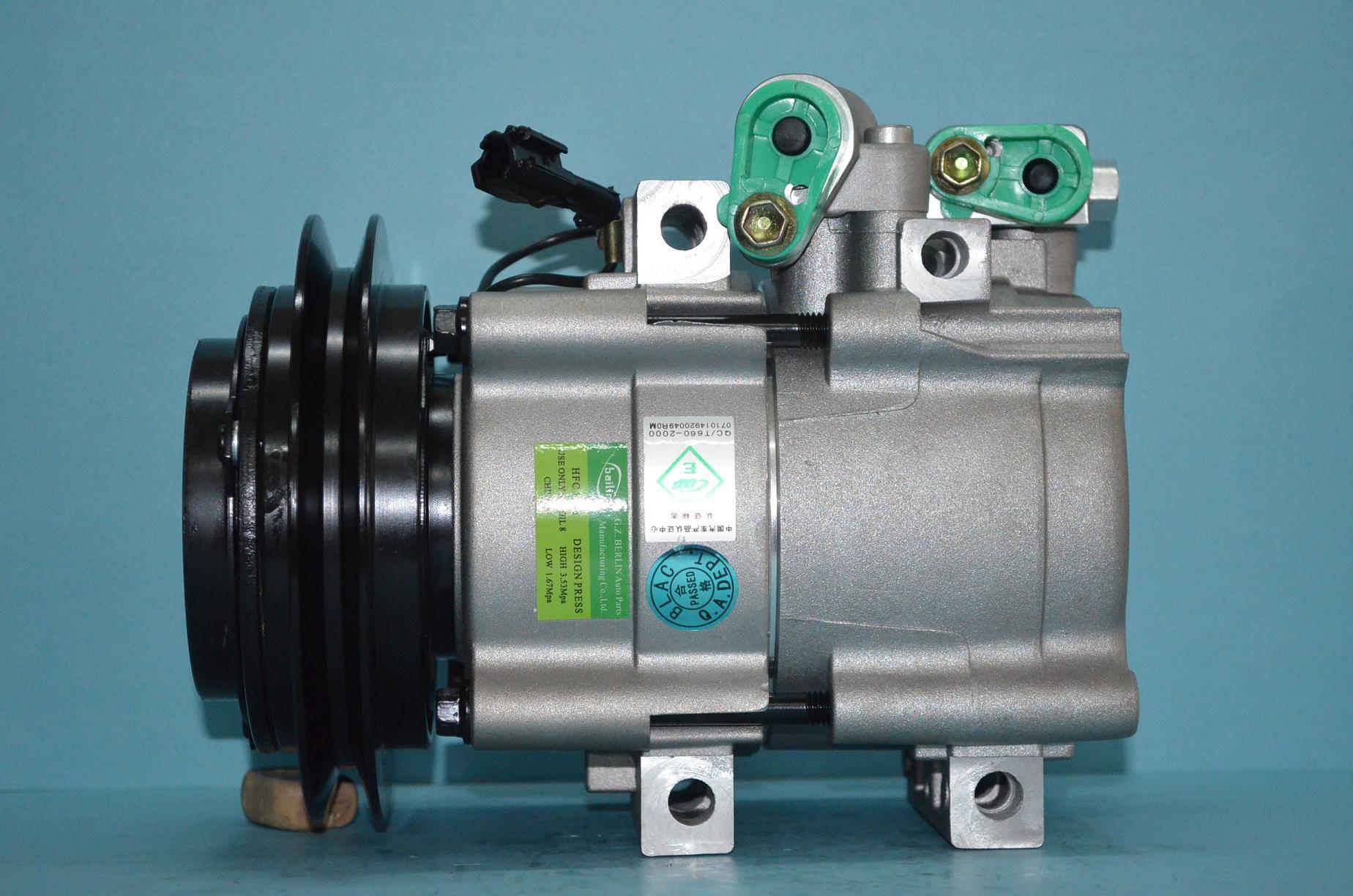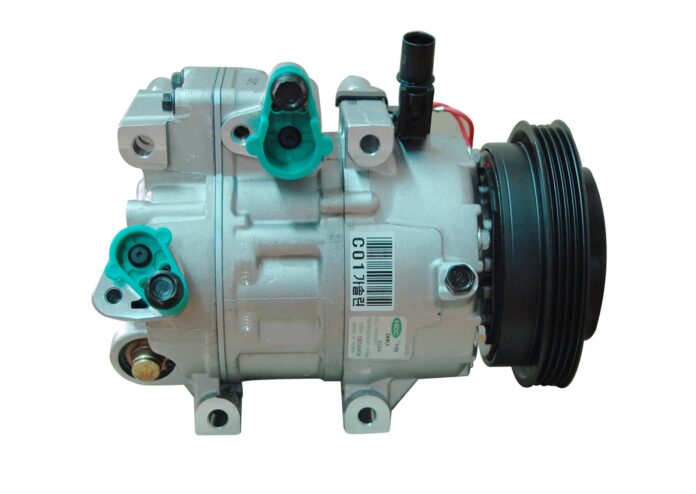In today’s fast-paced world, maximizing efficiency is crucial in all aspects of life, including home heating and cooling systems. One innovative solution that has been gaining popularity is using HRV Air Conditioning (Heat Recovery Ventilation) systems. These systems offer a range of benefits that enhance the comfort of your living space and contribute to cost savings and a healthier environment. Let’s explore the perks of incorporating Air Conditioning HRV into your home.
Understanding HRV and Its Integration with Hrv and Air Conditioning
Heat Recovery Ventilation (HRV) seamlessly integrates with your existing air conditioning system to bolster its efficiency and effectiveness. This harmonious relation between Hrv and Air Conditioning transforms how your home maintains its comfort levels, striking an optimal balance between fresh air intake and energy conservation. At the core of HRV technology is utilizing the energy in the outgoing stale air to precondition the incoming fresh air. This process significantly reduces the energy demands placed on your air conditioning unit.
When HRV is paired with your air conditioning, the synergy between the two systems creates a more controlled and adaptable environment. This unique combination ensures that your home’s climate is comfortable and tailored to your specific needs without excessive energy use. The exchange process facilitated by the HRV unit means that the air conditioning system doesn’t have to work as hard to heat or cool the incoming air, which can reduce overall energy consumption and, consequently, lower utility bills.
Moreover, integrating HRV with your air conditioning system does not require extensive modifications. Most modern air conditioning systems can accommodate an HRV unit, allowing for a relatively straightforward installation process. Once in place, the HRV system works with the air conditioning, enhancing its functionality and providing a more efficient way to manage indoor air quality and comfort. This integration not only elevates the performance of your air conditioning system but also ensures that your home environment remains pleasant throughout the year, regardless of the external weather conditions.
 Enhanced Indoor Air Quality for Healthier Living
Enhanced Indoor Air Quality for Healthier Living
Reduction of Indoor Pollutants
The HRV system works tirelessly to replace stale indoor air with fresh outdoor air, effectively reducing the concentration of indoor pollutants. This process ensures that allergens, dust, and other airborne contaminants are continuously cycled out, creating a cleaner breathing environment.
Mitigation of Humidity Levels
Proper humidity control is essential for a healthy indoor environment. Air Conditioning HRV systems adeptly balance moisture levels, preventing the build-up of excessive humidity. This mitigates the risk of mould and mildew growth, common triggers for respiratory issues and allergies.
Improved Ventilation without Energy Loss
Traditional methods of ventilating a home can lead to significant energy loss. However, HRV systems provide the advantage of improved ventilation while conserving energy. By recapturing the heat from exhaust air, these systems ensure that fresh air entering the home is already pre-warmed or pre-cooled, depending on the season.
Support for Respiratory Health
Consistently replacing stale indoor air with filtered, fresh outdoor air creates an environment that supports respiratory health. By reducing the presence of pollutants and maintaining optimal humidity levels, HRV systems help minimize the symptoms of those suffering from asthma and other respiratory conditions.
Enhancement of Sleep Quality
Fresh, clean air is key to achieving restful sleep. With reduced allergens and pollutants, coupled with the gentle air circulation, individuals can experience improved sleep quality, leading to better overall health and well-being.
Energy Efficiency and Cost Savings of Hrv Heating and Cooling
Integrating HRV heating and cooling systems into your home’s climate control strategy significantly reduces energy consumption and minimises operational costs. These advanced systems harness the thermal energy from outgoing air to precondition the incoming fresh air, thus requiring less energy to bring the air to a comfortable temperature. This innovative process leads to substantial energy savings and lessens the strain on your air conditioning unit, potentially extending its lifespan and diminishing the need for frequent repairs.
Moreover, the inherent efficiency of HRV technology in managing the heating and cooling demands of space means homeowners can anticipate a noticeable decrease in their monthly utility bills. This reduction is achieved without compromising on the comfort and quality of the indoor environment. The system ensures a stable and comfortable temperature throughout your home, avoiding the energy-intensive cycles of traditional HVAC systems that can lead to high energy usage and increased costs.
Another financial benefit comes from the potential eligibility for government incentives to encourage the adoption of energy-efficient solutions in residences. Such incentives can offset the initial installation cost and accelerate the return on investment, making Air Conditioning HRV systems an environmentally conscious choice and a financially wise one. By prioritizing energy efficiency and cost-effectiveness, homeowners investing in HRV heating and cooling contribute to a more sustainable future while enjoying the immediate benefits of reduced energy expenditure.
Reducing Environmental Impact through Heat Recovery Air Conditioning
Diminishing Greenhouse Gas Emissions
Heat recovery air conditioning systems are pivotal in curtailing greenhouse gas emissions. By optimizing energy use, these systems ensure that less electricity is consumed, thereby reducing the emissions associated with electricity production from fossil fuels.
Enhancing Energy Efficiency
The strategic use of air conditioning HRV systems contributes significantly to the overall energy efficiency of a building. By recuperating heat that would otherwise be lost and using it to pre-heat incoming air, these systems minimize the need for additional energy sources to maintain indoor temperature levels.
Promoting Renewable Energy Adoption
By reducing the overall energy demands of heating and cooling systems, air conditioning HRV systems make it more feasible to meet these demands through renewable energy sources. This encourages shifting from fossil fuel dependence toward greener, renewable energy options.
Fostering Eco-Friendly Habits
Installing air conditioning HRV systems serves as a step towards cultivating more sustainable living practices. It highlights the importance of energy conservation and efficiency, encouraging homeowners to adopt other eco-friendly practices daily.
Supporting Energy-Efficient Building Design
Air conditioning HRV systems are key in moving towards energy-efficient building designs. By integrating these systems into new constructions and renovations, developers can create buildings with a reduced environmental footprint, aligning with global sustainability goals.
Improving Comfort and Control in Your Space
Uniform Temperature Throughout
The strategic deployment of Air Conditioning HRV technology ensures a consistent temperature across your home, effectively eliminating the discomfort of varying temperature zones. This consistent climate control enhances the overall comfort of your living environment, making every room equally inviting.
Personalized Climate Settings
With the advanced capabilities of Air Conditioning HRV systems, you can customize your home’s climate settings to your preference. This includes adjusting temperature, humidity, and air exchange rates, ensuring your living space meets your comfort needs.
Silent Operation for Peaceful Living
One of the standout features of Air Conditioning HRV systems is their remarkably quiet operation. Unlike traditional HVAC systems that can be noisy, these systems work silently in the background, maintaining your home’s comfort without adding auditory disturbance.
Convenience at Your Fingertips
Modern Air Conditioning HRV systems often come equipped with remote control functionality, enabling you to adjust settings without physically interacting with the unit. This feature adds a layer of convenience, allowing for effortless control over your home’s climate from anywhere inside.
Zoning for Personalized Comfort
Air Conditioning HRV systems can be configured to create zoned heating and cooling areas within your home. This zoning capability means you can tailor the temperature in specific areas, catering to the individual comfort preferences of family members, thereby enhancing the efficiency and personalization of your heating and cooling strategy.
Longevity and Maintenance: Heat Recovery Ventilation Air Conditioning
Maintaining the optimal performance of your Heat Recovery Ventilation Air Conditioning system is key to ensuring it continues to provide energy savings and enhanced air quality over the long haul. These systems are robust and built to last, with many models engineered for years of reliable service. To achieve this longevity, a routine maintenance schedule is paramount. This includes checking and replacing filters regularly to maintain clean air flow, a crucial step for preventing system strain and ensuring efficient operation.
Additionally, it’s important to have professional inspections and servicing of your HRV unit. Experts recommend having these systems checked at least once a year to identify any potential issues before they escalate into costly repairs. This proactive approach to maintenance helps keep the system running smoothly, minimizing downtime and avoiding interruptions in comfort.
Cleaning the vents and ensuring that the heat exchange core is free from debris also play a vital role in the system’s efficiency. These simple steps can significantly impact the system’s ability to transfer heat effectively, ensuring that your home maintains a consistent temperature with optimal energy usage.
By adhering to these maintenance practices, homeowners can greatly extend the operational life of their Air Conditioning HRV systems, safeguarding their investment and enjoying the benefits of a well-regulated indoor climate.
Conclusion
In summary, the integration of HRV technology with your air conditioning system heralds a new era in home comfort and energy management. These systems significantly improve the air quality within your home, making it a safer and more comfortable environment, and also play a crucial role in reducing your energy consumption and utility costs. The innovative design of Air Conditioning HRV units allows for a seamless blend of efficiency and environmental stewardship, positioning them as a smart choice for the eco-conscious homeowner. The ability to customize your indoor climate, combined with the silent operation and zoning capabilities, ensures that your living space is tailored precisely to your preferences and lifestyle needs. Furthermore, with proper maintenance, these systems promise longevity, making them valuable to any home.
FAQs
Can HRV systems work with any type of air conditioning unit?
Yes, most modern air conditioning systems can accommodate an HRV unit. The installation process is straightforward, allowing easy integration with your existing HVAC setup to boost efficiency and air quality.
How often does an HRV system need maintenance?
It’s recommended that routine maintenance on your HRV system is performed at least once a year. Regular tasks include checking and replacing filters, ensuring vents are clear, and having a professional inspect and service the unit to keep it running smoothly.
Do HRV systems help save on energy costs?
Absolutely. By pre-conditioning the incoming fresh air with the energy recovered from the outgoing stale air, HRV systems reduce the workload on your air conditioning unit. This leads to lower energy consumption and, as a result, reduced utility bills.
Are there any government incentives for installing an HRV system?
In some regions, installing energy-efficient systems like HRV can qualify homeowners for government incentives. These can include rebates or tax credits, which help offset the initial installation cost and enhance the system’s return on investment. It’s advisable to check local programs for specific details.
| Related Business Listings |
| Contact Directory |
| Local Business Profiles |

